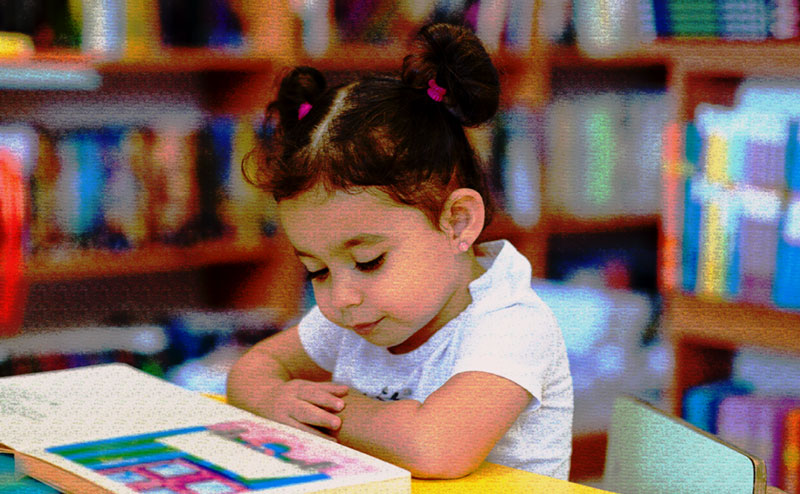Preschoolers and the Science of Reading | First Steps
Librarians share views on the best way to help kids get ready to read.
 |
SLJ Modified: Inna Reznik/Getty Imagesn |
Parents of young children are hearing about the science of reading, decodable books, and recent changes in reading instruction, and wondering what these things mean for their preschoolers. During a recent Brooklyn Public Library workshop, questions from parents of young kids revealed their confusion about the best way to help their little ones get ready to read.
“Why isn’t my toddler interested in flash cards?” one asked. “Should I read decodable books with my three-year-old?” said another.
The science of reading (SOR) is a collection of five decades of international, interdisciplinary research. That research led to guidelines for supporting what’s essential and works best in reading instruction. It is most helpful in assessing how children learn to read and write, why some have difficulty, and how to intervene. The theories, studies, and frameworks within SOR can provide a basis for reading instruction, but it isn’t a curriculum or a reading program. And, as the name suggests, it is science and it will evolve as research unfolds.
Also read: "Love It or Hate It, the Science of Reading Gains Traction in Schools"
Because of SOR, many school districts have begun to abandon “balanced literacy” methods in favor of phonics-centered approaches. Many libraries are responding by adding decodable books, which are phonics readers closely tied to the letter sounds students learn, to their collections. While an understanding of phonics is important in reading instruction, it’s not the only skill needed to build strong readers. SOR points to the need for oral language, phonological awareness, vocabulary, and background knowledge as well.
How can librarians support the development of these skills in the early years? Do we need to rethink our focus on the five Every Child Ready to Read (ECRR) practices of “talk, read, write, sing, and play,” foundational in library early literacy programming for decades?
The good news is no, since ECRR is rooted in SOR research, and these early literacy practices directly support the development of oral language, phonological awareness (which will support later phonics instruction), vocabulary, and background knowledge. Here are tips to support these foundational skills in young children:
Oral language maps onto the ECRR practice of “talk” seamlessly. Encouraging conversations between parents and kids is key, particularly by modeling talk with children, starting in infancy. When young children come to the reference desk, engage with them. Add and expand on what they tell you. If a child points to a dog in a book, say, “Yes, you’re right! That’s a big, brown, furry dog!”
Phonological awareness abounds in story time. When we sing, read rhyming stories, or share rhymes, we help children hear and play with the smaller sounds of words. If parents ask for decodable books for young children, it is fine to show them a few, but make sure they also go home with a stack of fun, engaging rhyming books and the lyrics to favorite story time songs, which they may enjoy even more. They will have plenty of time with decodable books when they begin reading instruction.
Let parents know that reading with young children is a vocabulary-building experience. Books often feature rare words not used in everyday conversation. Explain that while decodable books, with simple vocabularies, are useful for beginning readers, they may not be best for pre-readers who are still building oral language and vocabulary. A better choice may be language-rich picture books.
Finally, background knowledge is essential for the development of strong readers, and libraries excel here. Encourage parents to check out both picture books and nonfiction. During read-alouds, model stopping and explaining new concepts in age-appropriate ways. And tell parents about the rich resources available from the library to build knowledge, like museum-pass lending programs.
Research tells us that loving books is key, too. As Mollie Welsh Kruger, a field advisor and instructor at Bank Street College of Education, says, “Be ready with those books kids can’t put down and can’t wait to get home and open up!”
Jessica Ralli is coordinator of early literacy at BPL, where Rachel G. Payne is coordinator of early childhood services.
RELATED
The job outlook in 2030: Librarians will be in demand
The job outlook in 2030: Librarians will be in demand
ALREADY A SUBSCRIBER? LOG IN
We are currently offering this content for free. Sign up now to activate your personal profile, where you can save articles for future viewing






Add Comment :-
Be the first reader to comment.
Comment Policy:
Comment should not be empty !!!